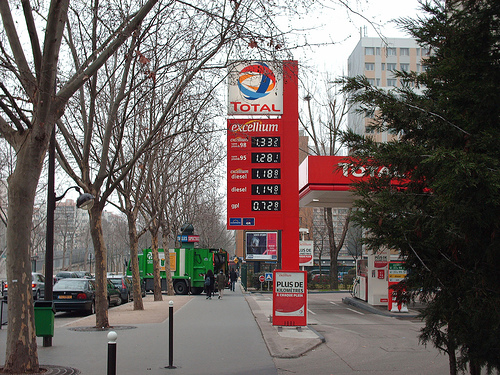By Zvamaida Murwira
The price of fuel has gone up by between US5 cents and US10 cents on the back of a surge on the international market. Petrol now costs between US$1,48 and US$1,65 per litre depending on location, while diesel is now selling at between US$1,32 and US$1,45 per litre.

The price increases as one moves further from major towns and cities. Before the latest round of increases, petrol was selling at between US$1,40 and US$1,45 per litre, while diesel cost from US$1,25 to US$1,33 per litre. The rise has been attributed to a surge in prices on the international market.
The increase in the price of fuel on the international market is being blamed on rising tension between Iran on one hand and the European Union and the United States on the other hand that has seen the former threatening to block the Strait of Hormuz.
This is a vital sea route used for oil and Iran says shutting oil traffic will be “easier than drinking a glass of water.”
Secretary for Energy and Power Development Mr Justin Mupamhanga yesterday said: “We have not yet gathered sufficient facts on what is attributable to the increase, but the tension between Iran and the West would obviously have an impact on the price.”
“You must also realise that provocation alone will result in destabilising the price of oil. This misunderstanding can destabilise the fuel price,” he said.
Zimbabwe Energy Regulatory Authority chairperson Mr Canada Malunga said they had been watching with a lot of interest the fluctuation of fuel prices on the local market. He said their preliminary assessment indicated that the surge in the price of fuel was not unreasonable.
“We still have the most competitive prices of fuel here. Just check with other countries, the price is around US$2 per litre in South Africa and ours remains modest,” said Mr Malunga. He, however, declined to comment whether tension between Iran and the West could have triggered the rise.
“Each time we have geo-politics particularly in the Middle East, it has an effect on the price.”
He said while Government has de-regulated the price of petroleum products, his organisation will not ignore circumstances where it felt the industry was ripping off consumers.
“As an authority we, however, make a close watch on the movements of fuel price to see if they are reasonable. What I can tell you is that our assessment is that our prices remain competitive compared to other countries, just check for yourself,” he said.
Petroleum companies yesterday attributed the fuel price increases to a corresponding surge on the international market.
“It has nothing to do with local factors. It has to do with international factors where there has been a rise on the international market,” said Mr Tafadzwa Chigumbu of Redan.
Other firms noted that if the current trend persists, it might have a ripple effect on the economy as prices of other commodities might rise as businesses try to cushion themselves from fuel prices.
Iran, which is one of the major oil producers in the world, has threatened to close the strait if the West imposed more sanctions on it. The Strait of Hormuz is a narrow corridor through which one third of the world’s seaborne oil exports transits.





